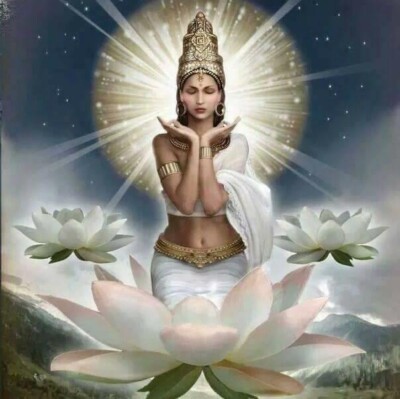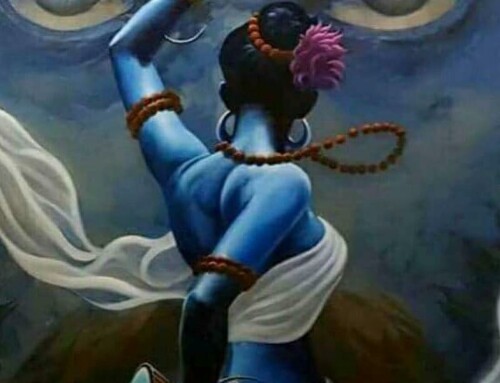
“The essential feature of Tantrism is the emphasis on the feminine principle. As I mentioned in one of my last articles, all Hindus agree on one essential point: the driving force of the world is always feminine …. from here, SHAKTI – TANTRISM, which I am representating, a mystical school of Hinduism, takes its starting point.
Their representatives say, that God cannot exist without Shakti, and Shakti is therefore God’s essential part, even God himself.
According to which goddess is worshiped as Shakti, one could distinguish within Tantrism in Brahmanites, Vishnuites, and Shivaites. But Brahman’s wife, Sarasvati, does not appear here. Even Vishnu’s wife Lakshmi only plays a very minor role. The vast majority of Tantrika worship Shiva’s wife, Shakti …
Shakti Tantrism has also had its influence on Mahayana Buddhism, and in North India, Tibet, Nepal, and later China and even in Mongolia has contributed significantly to the emergence of a new faith, Vajrayana Buddhism, which is taking a reverse path from the previous theology. This leaves all worldly come out of a Buddha archetype whose attributes are a Vajra (Thunderbolt – another word for Lingam = rod made of Jade) and a bell. The one symbolizes the self-contained wisdom and male creative power, the other the female receptivity.
On him is sitting a female figure in love embrace – YAB-YUM … the reality embraces the illusion and it creates the multiplicity of things ….
MAITHUNA, the life-giving union, the “great lust” of the divine, the epitome of tantric mysticism, was born …
Very interesting: the world religions are all worshipping one male god, the mystics, to whom the tantrika belong, worship especially the female aspect of the divine …
They actually refer to the ancient religions of the ancient matriarchal cultures, in which the “Great Mother” was worshiped …”






